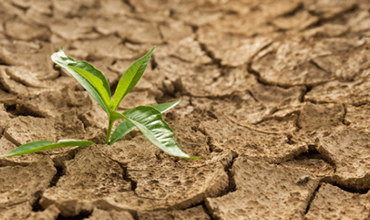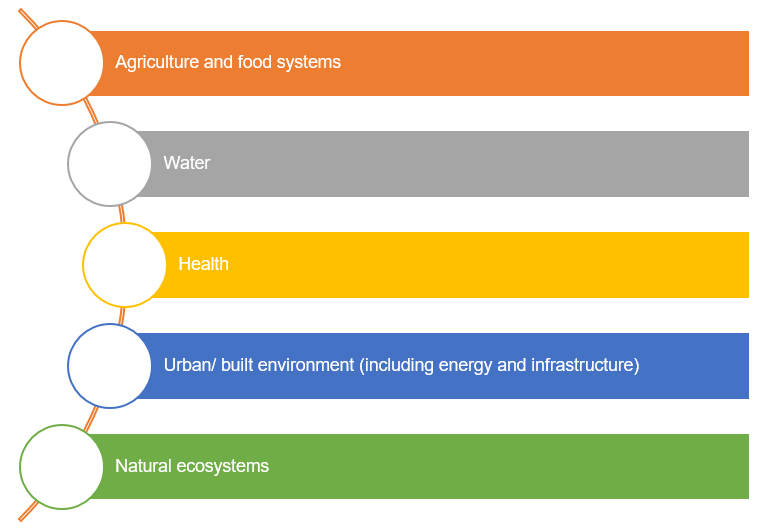
Resilience is the capacity of a system, be it an individual, a forest, a city or an economy, to deal with change and continue to develop. It is about how humans and nature can use shocks and disturbances like a financial crisis or climate change to spur renewal and innovative thinking. The integration of adaptation and mitigation responses can generate mutual benefits, as well as introduce co-benefits with development policies. In many cases, reducing the risk of climate change can enhance management of other risks, as well. According to IPCC, the scope for adaptation and resilience is decreasing with time, and it will be difficult to act once the limits to adaptation are crossed.
In developing countries, livelihoods and socioeconomic activities depend on climate sensitive sectors. Thus, developing countries are vulnerable to climate variability. Climate vulnerability coupled with poverty and increasing inequalities makes interventions important despite the challenges. Effects of climate change lead to decelerating development and less developed regions tend to have a weaker adaptive capacity and are more prone to climate impacts thus leading to a vicious cycle. To ensure a climate resilient development, it is crucial to consider issues that are complex, interconnected, and require interventions at the temporal and spatial levels. Five systems are crucial: (1) agriculture and food systems; (2) water; (3) health; (4) urban/ built environment; (5) natural ecosystems.

International initiatives largely focus on resilience of the built environment. For developing countries, it is also essential that there is a larger focus on systems with a larger bearing on livelihoods as well as socioeconomic implications such as agriculture & food systems and health along with natural ecosystems, water and urban systems. Although the role of the public sector is crucial, it is also important to augment the role of the private sector and incentivize their involvement in resilience including through nature based solutions.
International cooperation is an important link to provide critical support to partner countries in the form of finance, technical know-how, as well as capacity building. The public and private sectors, civil society organisations, communities and households all play important roles in addressing these challenges to achieve climate-resilient development that benefits the most vulnerable. Developing countries require urgent access to long-term, affordable finance to implement climate-resilient recovery measures.
The session will involve a moderated discussion which will start with remarks (4–5 minutes) by the Chair/moderator. The Chair will then invite each speaker to deliver the Ministerial Address for 5–6 minutes. After this, a 15-minute rapid fire round will follow where the moderator/ chair asks 2 questions based on issues emerging from the discussions and asks for a ‘one sentence answer’ from all speakers in the panel. Strict time management is to be followed. There will be an on-screen timer for the same.
The Energy & Resources Institute
6C, Darbari Seth Block, India Habitat Centre, Lodhi Road
New Delhi - 110 003 India
Email : wsds@teri.res.in
Ph. : +91 11 24682100 (Ext. : 2467)